May 18, 2025 | 19:10 GMT +7
May 18, 2025 | 19:10 GMT +7
Hotline: 0913.378.918
May 18, 2025 | 19:10 GMT +7
Hotline: 0913.378.918
Institute of Policy and Management (IPAM) of the University of Social Sciences and Humanities (Hanoi National University) in collaboration with the Rosa Luxemburg Foundation for Southeast Asia - Representative Office in Hanoi (RLS SEA) recently organized an international workshop "An indicator framework for sustainable communities towards socio-ecological transformation: Case studies in Vietnam".
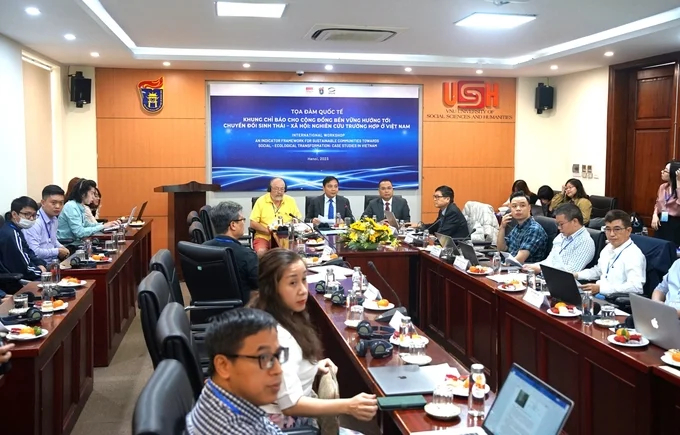
International workshop "An indicator framework for sustainable communities towards socio-ecological transformation: Case studies in Vietnam".
Socio-ecological transformation is an issue currently of concern to many countries in the process of implementing sustainable development goals. Conflicting impacts from economic growth and development not associated with socio-ecological environmental protection have created consequences that seriously affect the future development of the community.
According to Associate Professor, Dr. Dao Thanh Truong, Director of the Institute of Policy and Management, Vice Principal of the University of Social Sciences and Humanities (Hanoi National University), harmony between economic growth and environmental protection, or environmental protection for sustainable economic development is the first basis to ensure sustainable development in general and economic development in particular.“When the harmony in development of environmental and social factors goes hand in hand with economic development and growth orientations, humans are not only the beneficiaries but also the subjects that adjust the balance of all the above factors.The cooperation of each member of society, the change in awareness of each individual to the community is the most important factor for sustainable development goals to come to life", Associate Professor, Dr. Dao Thanh Truong emphasized.
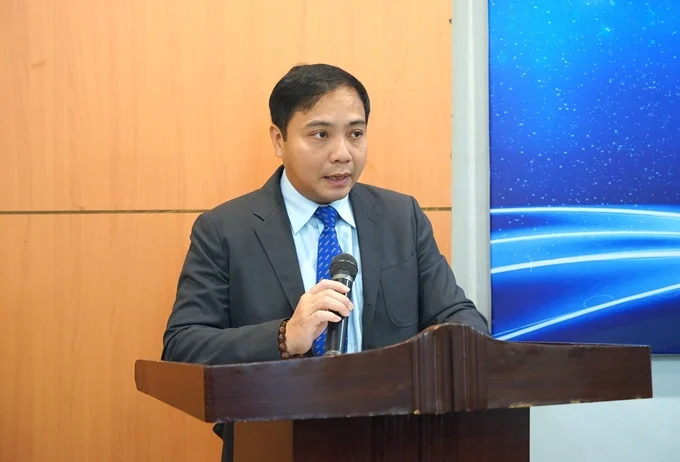
Associate Professor, Dr. Dao Thanh Truong emphasized that changing awareness of each individual and community is an important factor in achieving sustainable development goals.
In recent years, Vietnam has made many remarkable efforts in implementing sustainable development goals. Most recently, at the COP26 Climate Summit taking place in Glasgow (Scotland), along with many countries around the world, Vietnam has committed to achieving net zero emissions by 2050.
According to Dr. Vu Duong Quynh, Institute for Agricultural Environment (Vietnam Academy of Agricultural Sciences), in Vietnam, the issue of sustainable development of the agricultural sector in the context of socio-ecological transition is receiving attention from domestic and foreign organizations. That is shown by the fact that localities are implementing many combined ecological agriculture models such as rice-shrimp, rice-fish, and "abiding by nature" agricultural models...
The World Bank has also sponsored the evaluation of agricultural models combined with ecotourism in Vietnam, from there, they provide experiences to promote these models to develop effectively and sustainably.
Dr. Vu Duong Quynh also pointed out other evidence demonstrating the issue of sustainable development of the agricultural sector in the context of socio-ecological transformation, is receiving special attention from the State as well as the Government. Recently, the Prime Minister approved the Sustainable Development Project of 1 million ha specializing in high-quality, low-emission rice cultivation associated with green growth in the Mekong Delta until 2030.
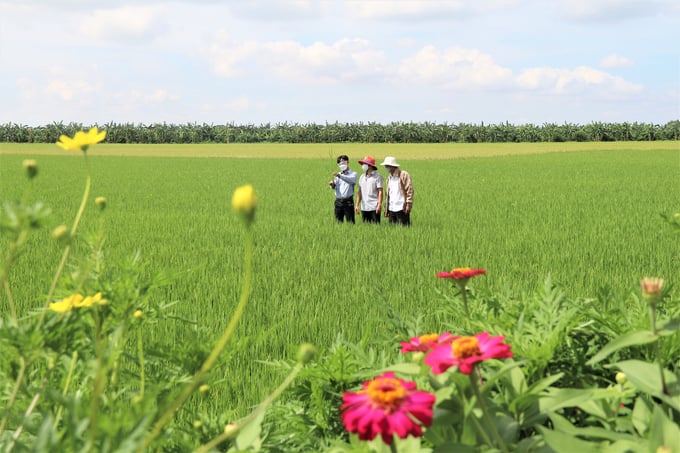
The Prime Minister approved the Sustainable Development Project of 1 million ha specializing in high-quality, low-emission rice cultivation associated with green growth in the Mekong Delta until 2030.
The overall goal of the Project is to form 1 million hectares of high-quality rice growing areas and low emissions associated with reorganizing the production system along the value chain, applying sustainable farming processes to increase value, sustainably developing the rice industry, improving production and business efficiency, income and life of rice growers, protecting the environment, adapt to climate change and reduce greenhouse gas emissions, contributing to implementing Vietnam's international commitments.
Accordingly, in terms of production organization, the Project targets 100% of the production area in areas specializing in high-quality and low-emission rice cultivation with links between businesses and cooperative groups, cooperatives or farmer organizations in the production and consumption of products; the synchronous mechanization rate reaches over 70% of the area; over 1 million households apply sustainable farming processes...
Regarding environmental protection and green growth, the Project aims for a post-harvest loss rate of less than 8%; 100% of straw is collected from the fields and processed for reuse; reducing greenhouse gas emissions by over 10% compared to traditional rice farming.
From 2018 up to now, IPAM and RLS SEA have implemented a series of projects in the social-ecological transformation component, including activities such as organizing international conferences, publishing books, and research documents and organizing summer science camps for young students passionate about scientific research on the topic of environment and sustainable development.
From June to November 2023, research "Indicator framework for sustainable communities towards socio-ecological transformation: Case studies in Vietnam" has been implemented and is considered the first testing step of the project.
Translated by Hoang Duy

(VAN) Deputy Minister Nguyen Quoc Tri also expressed his hope that Cuba will soon overcome its current challenges, attain food security, and further expand cooperation with Vietnam.

(VAN) The project contributes to enhancing the resilience of communities vulnerable to the impacts of climate change, with a primary focus on local women.
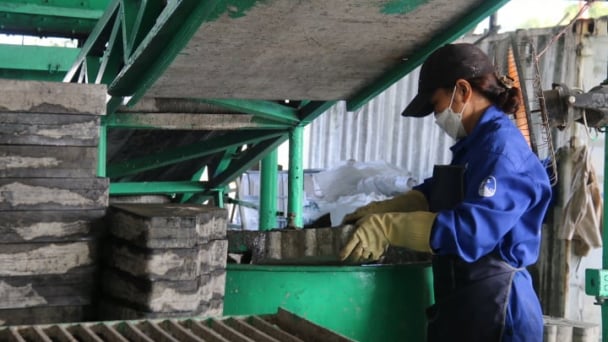
(VAN) Green materials help save energy and resources. However, after more than 10 years, Vietnam has only developed over 200 green buildings with more than 6 million square meters of floor space.
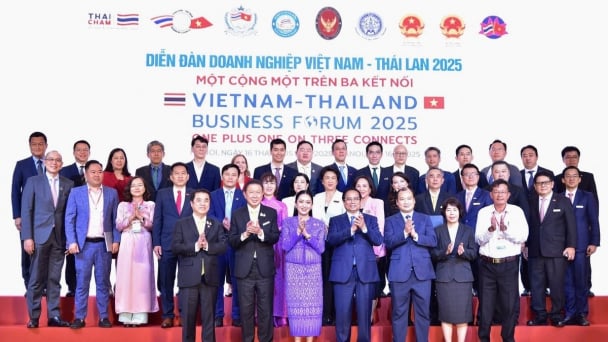
(VAN) Vietnam - Thailand Business Forum 2025: One plus one on three connects, marking a milestone in the comprehensive strategic partnership between the two nations.
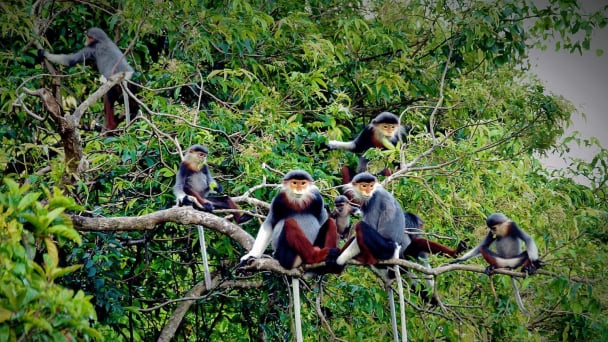
(VAN) The United Nations designated 22 May as the International Day for Biodiversity 2025 with the theme 'Harmony with nature and sustainable development.'
![Multi-channel, multi-directional Vietnamese agricultural markets: [8] A national strategy is needed](https://t.ex-cdn.com/nongnghiepmoitruong.vn/608w/files/phucpm/2025/05/15/1435-thi-truong-nong-san-viet-da-kenh-da-huongbai-8-can-mot-chien-luoc-quoc-gia-084750_728.jpg)
(VAN) The Chairman of Hung Nhon Group shared: ‘Opening up and tapping into new markets is the right and strategic direction for Vietnam's agricultural sector.’
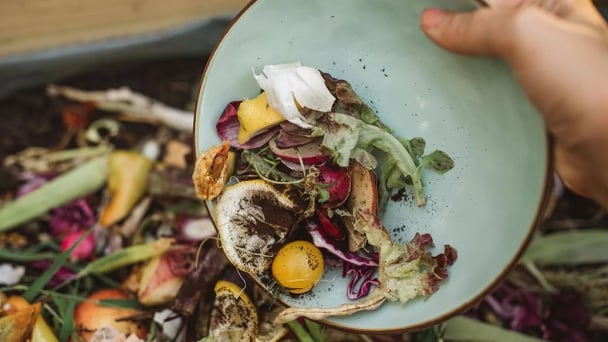
(VAN) Food waste has become a serious issue in modern society, especially in rapidly urbanizing and developing cities like Hanoi.